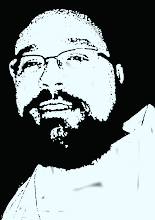It is largely taken for granted that the three primary western Abrahamic religions of Judaism, Christianity, and Islam all worship the same deity, albeit in remarkably different ways. While this may be the sentiment behind each major religion, I do not think we can continue to assume that this is the case on an esoteric level. History has not been so kind to religion and in many ways has demonstrated that religion is retroactively evolving back into more primitive, primal tendencies, largely due to various contemporary extremisms. I would argue that at this point in time, through the development of each of these three religions, Abrahamic spirituality has become a polytheistic warzone between the Jewish god Yahweh, the confused Christian/Egyptian ”Trinitarian” god, and Allah, the Islamic god. And there is good reason for this distinction; each has truly become its own divine archetype!
On the archetypal level, as it relates to human comprehension, Yahweh has always been a rather blood thirsty, racist egomaniac. Allah too, with his ‘convert all infidels or massacre them’ approach toward the human race holds better resemblance to the pre-Arabic warrior moon god Hubal than to a supreme divine source of omniscient love. While the Christian Trinity perhaps does a slightly better job at understanding divine complexity, it too fails with its transformation of Jesus from a lover of peace in the Gospels to an executer of justice in the Book of Revelation, all which are clearly Egyptian pagan carryovers from Geb, Nut, and Osiris. The result of this is that ordinary, unsuspecting people will worship only their ideas about the actual God instead of the actual God, creating much spiritual confusion.
Classical Gnosticism saw much of this dissonance and attempted to reconcile the archetypal problem by expressing the actual God (capital G) via a series of truly endless emanations. Some of these emanations were higher than others and so were closer to the actual God which Gnostics saw as an Unknowable divine reality. It is ironic, then, that at this point in history, 1700 years later, that we must turn back to an ancient “heresy” so as to explain just what the hell is going on here with our bloody, deadly, reprehensible 21st century “religion” problems.
So far, yes, you have read this correctly. This Christian bishop is not only suggesting, but is absolutely affirming, that the gods (lower g) that Judaism, Christianity, and Islam hold dearly in their daily worship are merely crude emanations of the actual God they all claim to hold a monopoly on. In a very real sense, if you must wonder why people who claim to be Muslims are beheading innocent men, women and children, and why people who claim to be Christians are calling for war against our “enemies” in the Middle East while judgmentally attacking homosexuals, people of other faiths, etc. back here at home, and why people who claim to be Jews support the explosive slaughter of innocent people in Palestine, you can rest assured that the answer to this is only to be found within the spiritual manipulative possession tactics of these archetypes while they are at war with one another, using human being believers as paws in their very deadly game of psychology.
The moral of the story? Take control of your canon of beliefs and learn how to worship, not the ”true god”, but the ACTUAL God, while also learning what genuine worship is. OR… do us all a favor and commit apostasy for the safety of these innocent lives that are being lost in the name of your “god(s)”. Atheism is a far safer world-view in the hands of the spiritually deficient.
Bishop +Bryan D. Ouellette, Ph.D.
Friday, September 5, 2014
Whose god is God?
Subscribe to:
Post Comments (Atom)






2 comments:
You don't believe in the Trinity? Just remove the "Our theology is orthodox" already.
It's more than likely that Valentinus was trinitarian. For Sethians and Hermetic, Father, Mother, and Son.
Why do you assume one's theology and one's realization must be one and the same thing? We practice Orthodox theology while allowing for absolute unrestricted freedom as it pertains to spiritual realization. They need not be the same thing. In fact, they shouldn't. Our position on "our theology is orthodox" will remain as it is.
Post a Comment